#fuck akio
Text
i know they are actually not similar but every time i listen/watch [opera] lucia di lammermoor i think about how lucia and enrico remind me of anthy and akio
like the way enrico tells lucia that she has to sacrifice herself to save him or she will be responsible for his death... two doomed and toxic siblings make my brain go brrrrrrr
and i hate both enrico and akio so they fit together LMAO
also in this lets call it AU assuming lucia is anthy, utena would be edgardo making their love being forbitten (orginally its romeo and juliet situation) doomed yuri
when gods grant me the skill of drawing i will draw utena characters as lucia di lammermoor characters MARK MY WORDS!!!!!!!!
#revolutionary girl utena#anthy himemiya#akio ohtori#lucia di lammermoor#crossover#lowkey#au idea#fuck akio
20 notes
·
View notes
Text
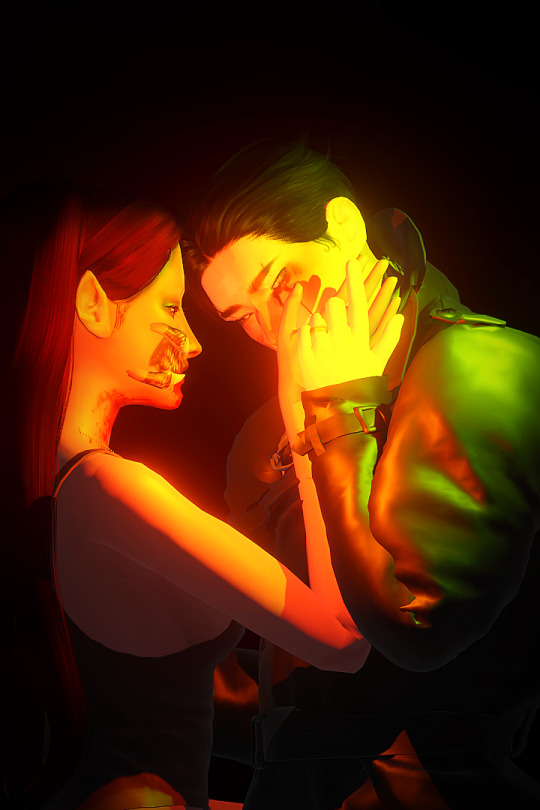
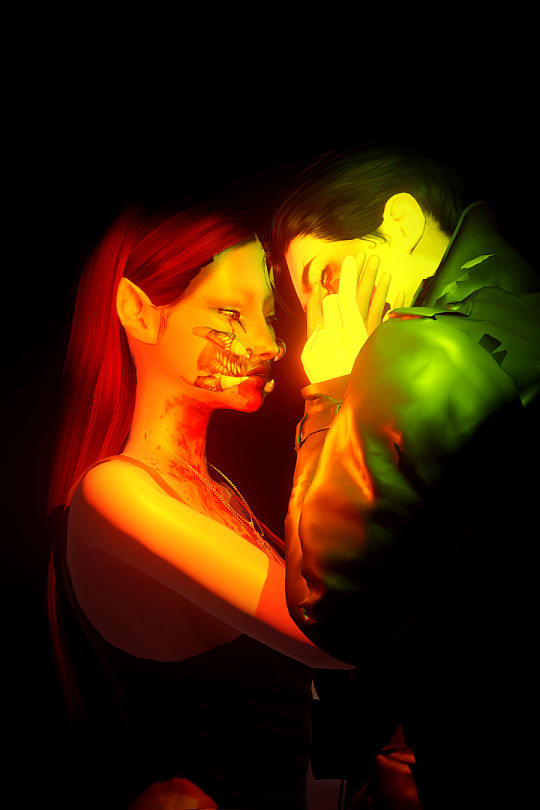
"I don't think it's very brave to crave comfort from the same person who hurt me, but I've never been an especially brave woman."
#FUCK akio#yue deserves better#ts4#the sims 4#the sims#sims#sims 4#cas#ocs#oc#cas screenshots#akio.*#yue.*#renders#sims edits#sims edit#sims 4 edits#sims 4 edit#sims render#sims 4 render#sims renders#simblr#my sims#my sim#my simblr#vaalbara
20 notes
·
View notes
Text
Anyways Akio can rot in hell
#just watched episode 33#fuck akio#theoverlordmonologues#revolutionary girl utena#rgu akio#akio ohtori
13 notes
·
View notes
Text
there is VERY LITTLE that is happening on screen that i like!!!!! what the fuck!!!!!
#lb: utena#there is some BULLSHIT going on and i'm UNCOMFORTABLE#but in a like 'this show is really good' way#FUCK AKIO#i hate this man
2 notes
·
View notes
Text
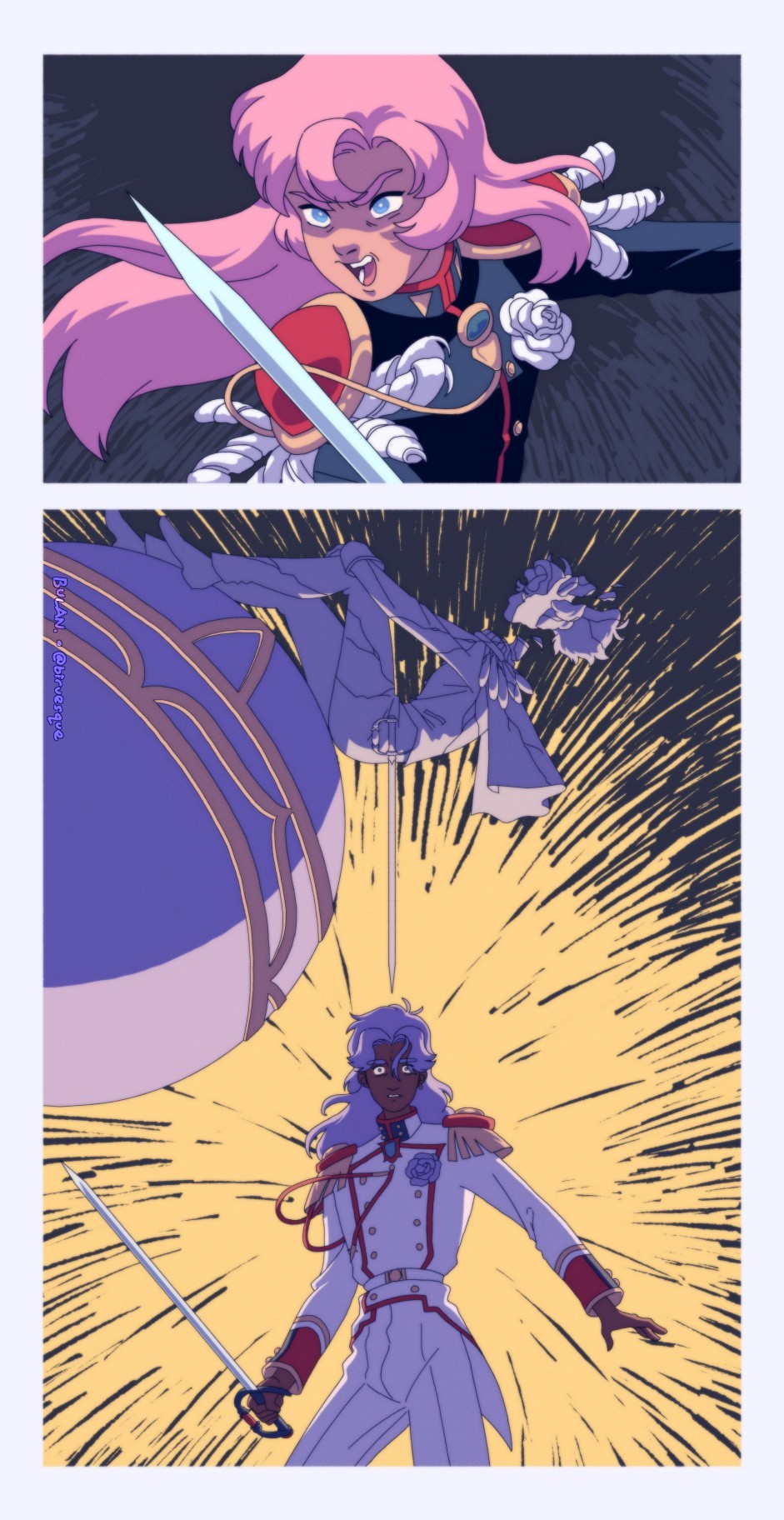
"I'm going to become a prince!"
#revolutionary girl utena#rgu#shoujo kakumei utena#sku#tenjou utena#utena tenjou#utena#ohtori akio#akio ohtori#akio#biruesque art#this is one of my fav moments from 38 idk it's so powerful#but yk the concept of “prince” in 38 and 39 is still vaguely up to interpretation i think#it could be the figure doomed to die from saving someone#like in juri's story#it could be an impossible and unattainable virtue#it could still be genuinely what utena wanted to be#and that she still believed in some version of it even if it was removed from akio and dios#eitehr way the way dios' grave just shatters#its so fucking good i oaaouaououghghg
2K notes
·
View notes
Text
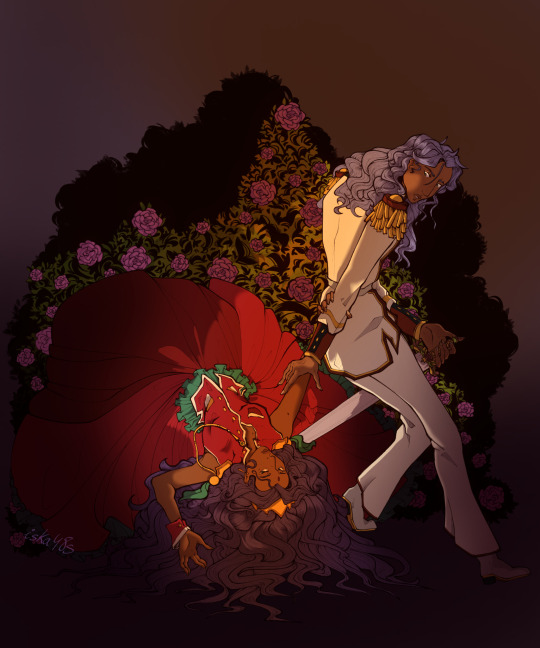
The Witch and The Devil
#fan art#revolutionary girl utena#anthy himemiya#akio ohtori#i fucking hate akio#idk why i drew him i guess i had a vision or smth#artists on tumblr#fanart#digital drawing#right at u with another symbolism yay#if someone is reading this have a nice day :))#rgu
1K notes
·
View notes
Text
ok so. miki’s sunlit garden is the literal sunlit garden where he and kozue played piano together as children. it’s the defining version of this narrative device, and in a way, it’s the most straightforward. miki is leaving the garden and entering the world of teenagers. he is scared of growing up, and he misses the effortless, uncomplicated bond he shared with his sister when they were children, before being inculcated into a world of sexual power and abuse, before his parents divorced and his beautiful nuclear family was rent asunder by real-world complications. i genuinely think every 13-ish year old goes through this grief and a desire to hold onto the past, to remain in this perfect nostalgic bubble through which you view your childhood. it’s probably the most universal and identifiable instance of the motif of the sunlit garden.
then it gets more complicated. nanami’s sunlit garden is her memories of short-haired touga, of her big brother showing her his affection, making her feel special, worthy, and loved. but unlike miki, she doesn’t miss being a part of the ideal nuclear family. for one thing, both she and touga are adopted. of course, she doesn’t actually know that, but it nonetheless problematizes the bioessentialist logic upon which the nuclear family [abuse factory] structure is predicated. secondly, it’s clear that she was always the scapegoat to touga’s golden child. which is why it’s not that she loves her sibling as an extension of her childhood nostalgia, but that her entire value system fundamentally revolves around touga, because he was the only person in her formative years who ever showed her the slightest sliver of affection. and in all her memories of him, he has short hair (like dios, like miki), because subconsciously she doesn’t even want him to be her Prince, her patriarchal savior, she wanted him to be someone who loved her because she inherently deserves love. she does treat him like her prince in the present, but that’s only because it’s how her love for him must take form in ohtori. deep down, she doesn’t want a prince, a lover, or even a brother; she wants a friend who will love her for nothing. but she has no way of expressing that, not in a world that claims true friendship is for fools. so instead she values him for their biological ties, for his status as a kiryuu, for his patriarchal role as the eldest son in their perfect nuclear family. and she refuses to acknowledge how she demeans herself in the process of worshipping him, how she’ll drown herself and cook herself and cage herself, debase herself and dehumanize herself for his illusory love. and that is what the sunlit garden means to nanami.
as for saionji, the sunlit garden also constitutes his memories with touga, of a “before” that is much more definable in the sense that there is clearly a moment where it becomes “after.” one day they are riding their bike through the rain after kendo practice, and they decide to take shelter in a church. and saionji sees touga become someone he fears and also envies. someone who wields the power to project something eternal, to inspire, to save. and he exerts his power in a subtly violent way, by transgressing invisible boundaries. saionji cannot harness that power, so he attempts to exert it clumsily, through immediate, obvious, physical forms of violence. it never quite packs the same punch as touga’s manipulation, no matter how hard he tries. but what saionji really longs for is not to possess touga’s power, but to go back to the way things were before touga decided he wanted power. touga thinks true friendship is for fools, but like nanami, all saionji wants is to be touga’s true friend. and isn’t that just tragic?
of course, that’s not all saionji wants. but his desire is complicated by the fact that he clearly also resents the sexual acts he is being put through by touga, even if in other circumstances, it could be what he wanted. juri’s situation, her sunlit garden, is similar to saionji’s in this respect. all she wants is shiori, but she doesn’t want the shiori she is being presented with. she wants the shiori from an illusory idealized past in which they were true friends, before shiori betrayed her and revealed her ugly feelings in the process. like miki with kozue, nanami and saionji with touga, utena and anthy with dios, mikage with mamiya, juri is idealizing a version of the object of her affection who never really existed. shiori’s ugly feelings were always latent. unlike miki’s sunlit garden, nanami’s flashback to touga’s party and sea of photographs, or saionji’s memories of touga tenderly wrapping his hand, juri does not even have memories of shiori that are not defined by her betrayal. yes she has shiori reaching out, holding a rose, saying “believe in miracles and they will know your heart,” but it’s an obvious fiction. juri doesn’t know shiori at all, and the shiori juri knows is not the shiori she loves. the sunlit garden is always a garden of illusion.
utena’s sunlit garden, which opens many episodes, is perhaps the most obvious example of this fact. she completely rewrote her own formative memory to better suit the dominant patriarchal narratives she was forced to adopt all her life. and you can say that akio actively tampered with her memories, but functionally speaking, that’s the same thing. even more so than the others, her sunlit garden is a palimpsest; she idealizes a past and a prince that never actually existed. sure akio and anthy exist, but her “prince” is not either of them. the locus of her will to live, that eternal thing, is a fiction. but her desire to help others in need is genuine. and that is what differentiates utena’s sunlit garden first and foremost. it is not founded on a selfish desire to cling to a perfect past of illusion, but on the selfless desire to keep moving forward in hopes of a better future. they all want to hold onto something eternal, including utena in her desire to keep her parents with her, and all of those desires are perfectly understandable and eminently sympathetic, but utena is different because that day that akio showed her anthy’s suffering, utena’s desire shifted from a memory to a telos.
mikage’s sunlit garden thus becomes a cautionary tale to all the members of the student council who wish to live in a memory, perfectly suspended, pinned in place like a butterfly on display. just as a caterpillar must become a butterfly, a child must enter the world of adults. mamiya is beautiful because he has the luxury of dying young, of being immortalized on a carousel, of never losing his innocence. mikage is what happens to people who idealize eternity through escaping into nostalgia. the world keeps moving on without them, and they become ghosts, trapped in a past that no one can recall.
so what of akio? he uses people’s sunlit gardens against them, he manipulates time and memory, feeds off nostalgia and the grief of lost childhood. he cultivates his garden to resemble golden days, and as he invites you through his gates, ensnares you. so what does that mean, when his goal, too, is to achieve eternity? above all he wants to forge a sword that will break through the closed gates and reinstate his former glory. of anyone in ohtori, he is the one most deeply entrenched in his oh so cozy coffin. for all that he knows his promises to be illusory, he also clings to that logic, he also mourns dios. he longs for his golden days despite knowing that they’re untenable, despite being well aware of the toll it took on anthy. and even fully aware of the extent of his exploitation, of the fundamental illusion of eternity, he still attempts to attain it, he still instantiates himself in a cycle on the carousel, condemned to ghosthood, a butterfly pinned in place.
finally, we must look to the absent figure, the outlier. what, or rather who, is touga’s sunlit garden? the movie tells us it is utena, that he embodied the princely role in the truest sense and that this is his deepest aspiration. but i don’t know if that’s necessarily how i read him. anthy and touga are foils, two sides of the same coin. anthy doesn’t have a “sunlit garden” per se, because she has long given up on the idea of returning to a time when she loved dios, before the swords of hatred pierced her heart. but she has a literal sunlit garden, and her role is to tend the flowers in it and never leave. she has a literal coffin, guarded carefully in the chambers of her heart. anthy knows better than to cling to an idealized past, but still, she cannot find a way to move forward. so she gets stuck in a circular present, where both past and future are illusory concepts. it is not enough to simply know that the past is gone, one must also strive for a better future. it is why utena and anthy’s promise to drink tea and laugh together in ten years is just so powerful within ohtori’s timeless walls. i’d bet anything that touga also doesn’t have an idealized past. if, again, we use the movie to inform our understanding of him, he was always aware of the abuse that pervaded his world, he was never an innocent. but instead of desiring reform, like utena, of wanting to save those suffering, he wants to be the one inflicting that suffering as much as possible. to cope, he accepts his abuse as a necessary consequence of existence, and assumes that anyone capable of abusing him is simply more powerful, and thus deserves to exert their power over him, just as he deserves to exert his power over those less powerful than he is. so like anthy, he doesn’t have a sunlit garden, but he has a coffin, and a garden, and a carousel. and like anthy, he must choose for himself whether he wishes to remain a complicit victim, or to leave his cozy coffin and find a way to move forward. and that, only time can tell.
#analysis#manalysis#u#UMM. THIS POST WAS SUPPOSED TO BE ONE PARAGRAPH????? OOPS#it’s 2 am now. fuck#the sunlit garden#miki#nanami#touga#saionji#utena#anthy#akio#mikage#juri#shiori#mamiya#dios#this was just me rambling as a way to organize my thoughts#it’s incredibly stream of consciousness#i am in no way trying to make an argument here im just trying to like. parse my thoughts on the sunlit garden#(the land of illusion….. anyone else hongloumeng pilled.?)#long post
318 notes
·
View notes
Text
the amount of times utena brings up other people in an attempt to get akio to stop what he's doing makes me so sick to think about. kanae and the wedding in his car in episode 30, her prince later when he's about to kiss her, anthy all throughout episode 33. it's like she's afraid of saying no to him directly so she has to try to make him come to the conclusion that she doesn't want it, falsely believing he cares about that in the slightest.
#it particularly makes me sick because it's the most relatable thing in the entire fucking world.#utena#akio and utena#m
119 notes
·
View notes
Text

The Bastards
#revolutionary girl utena#shoujo kakumei utena#utena fanart#akio ohtori#puella magi madoka magica#kyubey#madoka fanart#the bastard#i hate these mfs#i love to hate them#FUCK THESE BITCHES#RAAAAAAAAGHHHH
370 notes
·
View notes
Text
“fernsong is cool bc hes vaguely gnc bc hes got a GIRL name and you hate gnc men if you dont like fernivy. see, wc doesnt have a problem with gender roles <3 they let the men OCCASIONALLY break them a little bit!!” wow thats cool. hey remember that scene in rgu where akio gets praised for baking a cake and everyone talks for a bit abt how hes better than his sister bc he bakes better food than a girl (her job) and hes so cool and awesome and brave for breaking gender roles, and then thats immediately juxtaposed with a scene where utena is yelled at by the school staff for not wearing a skirt and how shes a failure of a girl for not sticking to girls outfits
#id say some wc fans should watch rgu but actually no djfjfjf#not that fern is anything like akio ftr akio is like genuinely fucking awful while ferns just some overhyped guy but still
50 notes
·
View notes
Text
Touga and Kozue have maybe the most amicable relationship of any two characters with Parallels(TM) in Utena, and the entire cast (particularly Miki) is incredibly lucky that they only acted as partners in crime once.
#revolutionary girl utena#touga kiryuu#kozue kaoru#shoujo kakumei utena#kiryuu touga#kaoru kozue#rgu#sku#obviously kozue is also a nanami/anthy parallel#MORE of a nanami/anthy parallel actually#but. she and touga do have some similarities that make me glad they seem to have parted ways and never interacted again#they both use sex to manipulate people#and participate as enthusiastically as they can in their own exploitation because they think it gives them more control#they're both in the passenger's seat of akio's car on a semi-regular basis#and much like touga seeks to harness akio's power as a ''prince''#by manipulating women and exploiting his sister#kozue seems to... admire? anthy. envy her maybe. covet her power in a way different than the duelists do.#clearly unaware of how badly it would fuck her life up to BE the rose bride#or. well. maybe she thinks she knows. but she does not!
40 notes
·
View notes
Text
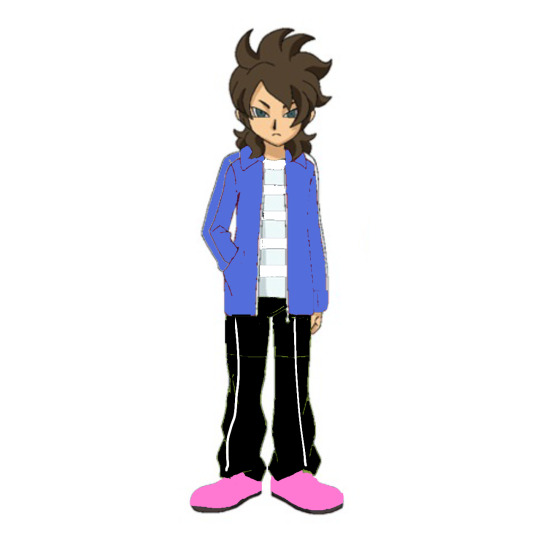

I had a fucking vision.
I woke up.
And it came to me.
(Credits to Luc.)
#inazuma eleven#inazuma eleven go#inazuma 11#fudou akio#caleb stonewall#sans undertale#sans#undertale#art#fanart#crossover#best fucking shit ever made#what the actual fuck#he dose look like sans though#lgbt
15 notes
·
View notes
Text
utena AU where touga is an overly eager car salesman
#rgu#touga kiryuu#the way he acts in the akio's car arc#bitch appears out of nowhere and asks you to sit in the stupid fucking car. you cannot refuse#my post
14 notes
·
View notes
Text
Happy Anthy Himemiya Emancipation Day to all who celebrate
18 notes
·
View notes
Text
anthy and saionji both have long wavy hair, but anthy mostly keeps it pinned up and saionji mostly lets it loose, and they have have inverse hair and eye color schemes. the colors of purple and green operate symbolically within utena in a far less immediately noticeable way than the colors of white, red, or yellow, but they nonetheless perform a necessary symbolic function within the narrative.
we are told in ep 13 ("tracing a path") that the "green duels" (ie, utena's first two duels against saionji) represent "amitié" and "choix" (friendship and choice), while the duel called "révolution" is dark purple. in her initial duels, utena fights for friendship (for wakaba), and then makes the active choice to win so as to keep anthy from saionji's clutches. but "raison," "amour," and "adoration" don't follow this pattern. miki is the one who fights out of "reason," juri is the one who fights out of love, and nanami is the one who fights out of adoration (for touga). you could of course also argue that utena mirrors their desires in various ways: like miki, utena thinks that her desire to participate in the duels is logical rather than driven by ego; like juri, utena is a closeted lesbian who fights for an idealized love object; and like nanami, utena fights out of adoration for her prince. but they are more superficially describing miki, juri, and nanami’s motivations than utena’s. moreover, utena's fights against touga, "conviction" and "soi," go back to primarily representing utena's emotions and motivations for fighting. and finally, the duel called revolution is, of course, not only utena's revolution, but, arguably more importantly, anthy's.
thus, reading these labeled ascribed to color symbolism is not as simple as attributing them 1:1 to different ideas. after all, red is an extremely prevalent color in utena, and reducing it simply to "conviction" and "soi" as akio does is willfully playing into his game of ignoring its significance as it functions as the color of [sexual] violence, among other things. the definitions of symbols we are presented with are not simply what the symbols "mean," but rather what the frame is indicating, and often obfuscating, and the onus is on us as viewers not simply to "decode" certain symbols present, but also to interpret and actively complicate them.
when it comes to saionji's duels, i think you can read these labels both ways; both as utena fighting for wakaba and then for anthy, but also as saionji choosing to fight due to his own complicated friendship. his sunlit garden is, after all, his memories with touga, and his primary motivator and desire for "eternity" is his infinitely complicated desire to both surpass touga – beating him in a duel, acquiring the power he believes touga to already possess, etc. – and regress to a simpler point in their childhoods, which is why he also just refuses to let touga go despite actively loathing the person touga has become.
his hair is green and eminently noticeable, both because it is genuinely beautiful, and also because he basically only ever ties it up when practicing kendo. kendo is when he is most in his element (arguably the only times he is ever in his element and not painfully awkward and cringeworthy), and is also the one thing he actually has that proves that he is superior to touga in some concrete way. but in his student council uniform, he keeps his hair long and loose, like an open wound bleeding out everywhere.
anthy, on the other hand, keeps her long, beautiful, purple hair tied up, and only ever lets it down in her most intimate and vulnerable moments. unlike saionji, who is a pathetic open book, anthy never wears her heart on her sleeve (she claims she doesn't even have a heart). she is always guarded. when she lets her hair down, she looks like an entirely different person. she looks far younger, far more girlish. akio exploits that youth and vulnerability, while utena connects with it as her peer who feels empathy and compassion for her friend's suffering. anthy's purple hair signifies revolution both in the sense that as the rose bride and an "extension" of akio, she perpetuates the infinite cycle of futile stasis, and in the sense that she ultimately does emerge from her coffin and leaves ohtori behind.
so why are her eyes green, and saionji's eyes purple? this inversion is deliberate, of course. to be reductive, anthy has the eyes of "friendship and choice," and saionji has the eyes of "revolution." if hair represents how characters are perceived and interpreted by the gaze of the other, then eyes represent the character's internal gaze projected outwards — or more simply, their worldview. anthy's purple signifies both the coffin as eternal prison and its revolutionary potential upon leaving it. who is most insistent that we must leave our coffins prepared for us by end of the world? and who is given the opportunity to egress through expulsion, but also finds that even as he wishes to escape his coffin, something keeps him miserably moored in ohtori, even as he resists its thrall?
saionji is the character most vocally outspoken against the system, and not only the system of fighting to possess a girl, which is obviously, gratuitously objectionable, but the very premise of ohtori in itself, the system of school as coffin. but he is also the first character we are introduced to who participates in it, and he subscribes to anthy's abuse and exploitation wholeheartedly, almost demonically. even those within ohtori's walls can condemn saionji's blatant, uncouth mode of abuse; unlike the covert and obscured sexual violence permeating ohtori's hallowed halls, saionji's physical violence cannot be obfuscated, and it makes him a target of punishment through satisfying humiliation. everyone enjoys schadenfreude at the expense of a violent misogynist. meanwhile, touga is equally as pathetic and humiliating if not more so, but his methods of violence are less obvious, and due to wholly subscribing to the narrative (ie, akio) and operating within that frame, he cannot be made an object of ridicule as saionji is. saionji is both ridiculed because it is funny to watch a perpetrator of domestic abuse get turned into a monkey, and because his cogent insights must be undermined through mockery within the confines of a narrative he actively attempts to resist.
anthy, on the other hand has green eyes, as does akio. anthy's sunlit garden, if you can even call it that, was her memories of dios as prince. such a memory is only depicted through the falsity of theatrical shadows, an illusion projected onto the literal stage quite like the illusions akio projects across his entire domain. we are then given insight into a "truer" memory (still nonetheless complicated by anachronistic signifiers and the haze of allegory and illusion). but, we are told, anthy made the choice to sacrifice herself for dios. she bore all the pain and suffering of humanity's hatred for years out of love for her brother. what is utena if not a show about friendship and choice? who is anthy if not a young, scared girl who loved too deeply and paid the ultimate price for it?
utena wants to be dios, but touga wants to be akio. anthy attaches herself to dios-as-akio, and saionji attaches himself to touga-as-akio. "you remind me so much of dios when i loved him." the memory of a person you once truly loved, taking on a completely different name in memoriam of that past version, trapped in the perfect stasis of memory, the sunlit garden of the mind, that will never go to seed. the touga of nanami's memories, the touga of saionji's memories, and the touga of the present, are three different people, functionally speaking (and this isn't even getting into the touga of utena's memories in adolescence). just as anthy resents the akio of the present who conflicts with her ideals of dios in the past, saionji attaches himself to a memory of touga, doing everything in his power not only to break free of his own coffin, but to help touga escape his. if anthy fears that utena becoming dios will result in her turning into akio proper, saionji's fear is even more potent, as touga is already in the process of becoming akio, and there is seemingly nothing left to do but become his rose bride.
there is also the obvious fact that, while a distinctly different shade, ohtori school uniforms, especially the boys' uniforms, are largely green. and saionji's kendo outfit is partially purple (albeit a lighter purple than anthy's hair) and partially black (like utena’s shirt). akio/anthy's green eyes can thus be read as their entrenched roles within the walls of ohtori, while saionji's purple hakama when he a) is situated in his element (kendo) and b) says "no matter how you may be abused, you're always happy to be near the one you love" (for which he is immediately dismissed) may signify his latent "princeliness," both as he participates in the system of exploitation and abuse, and as he attempts to resist it.
ultimately, saionji and anthy's inverse color scheme constitutes merely one facet of a much larger tapestry of color symbolism, which could be analyzed endlessly, and lies far beyond the scope of this single post. i merely wanted to draw attention to anthy and saionji's roles not only as visual foils, but also as thematic complements. two coffin-dwellers, trapped in a system that explicitly harms them and harming others in the process (including each other). two sides of the same rose bride paradox. two self-destructive cynics. two idealists who, no matter how they may be abused, are always happy to be near the one they love.
#u#analysis#manalysis#anthy#saionji#akio#utena#touga#eye colors go so fucking crazy#remind me to talk about the utena miki isms next
98 notes
·
View notes
Text
one of the most heartbreaking moments in the entire show is when nanami tries to transfer out of ohtori and akio and touga won't let her
#like that moment when touga holds up her transfer request to taunt her and akio's like “time for your drive” . so fucking devastating#revolutionary girl utena#nanami#touga#akio#m
83 notes
·
View notes